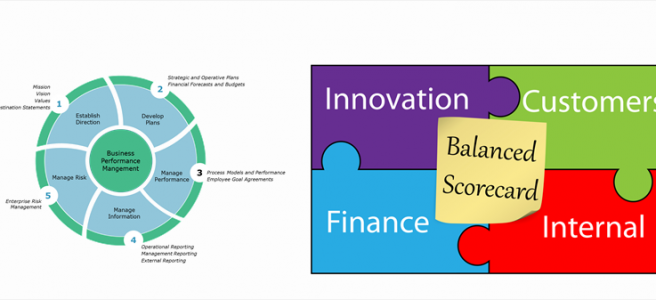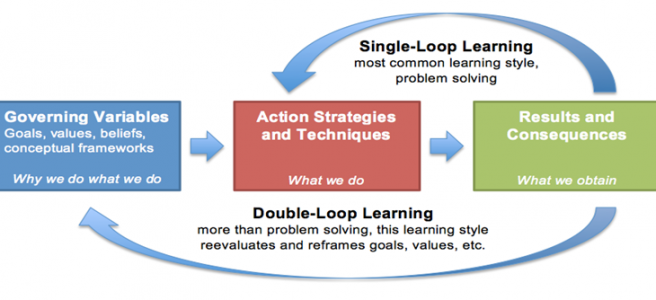This post compares two frameworks: the Business Performance Management (BPM) framework and the Balanced Scorecard, identifying a number of commonalities and some differences between them.
The Business Performance Management (BPM) Framework


This post compares two frameworks: the Business Performance Management (BPM) framework and the Balanced Scorecard, identifying a number of commonalities and some differences between them.

Recent posts have described a number of frameworks: for our motivations for action, the perspectives we take when considering a problem, organisational alignment and learning. This post looks at the value of using frameworks for thinking, particularly when we want to bring about organisational change in sustainable way.

We know that organisations are complex adaptive systems, which means outcomes are emergent, i.e. inherently unpredictable. We may do something with a certain expectation, but what actually happens can be very different. This post looks at a couple of things we can do to manage this risk.

In the previous post we looked at an exploration of the relationship between strategic alignment and employee engagement. Findings are in line with expectations that better alignment is associated with a higher level of employee engagement. But is it possible that better alignment is not just associated with, but actually results in, higher engagement?

The observations from the research were consistent with our hypothesised positive relationship between strategic alignment and employee engagement, but also led to some interesting insights.

Strategic alignment and employee engagement have both been proposed as drivers of organisational performance. Could these drivers also be related to each other?

In this post we look at triple-loop learning, a form of learning that underlies the current drive for diversity, but runs much deeper than the goal of equal voice

When we talk about learning, we generally talk about a particular type, Single-Loop Learning. In this post we look at Double-Loop Learning and the difference between the two.

In this post we look at why it is critical to be in the learning mode when attempting to improve alignment in organisations

There is no universal definition of strategic alignment. In this post we look at why that is the case

To help understand why it is so difficult to sustainably improve alignment, this post takes the concept apart within the organisational context

Stephen Pepper’s fourth World Hypothesis, Contextualism, takes us beyond complex adaptive systems into the realm of human systems

Third in a series explaining Stephen Pepper’s four World Hypotheses (lenses we use to view the world around us), this article looks at Organicism or World-as-living-organism.

Second in a series explaining Stephen Pepper’s four World Hypotheses (lenses we use to view the world around us), this article looks at Mechanism or the ‘world as machine’ view.

The way we see ourselves in the organisational context is influenced by our motivation, which could be a combination of the following: to describe what we see, to explain what we see, to achieve an outcome or to act in accordance with our ethical orientation. In this series of posts let’s look at how this […]

When we think of organisations, what comes to mind is the image of a well-oiled, finely-tuned machine humming smoothly to deliver products and services to customers. But our experience of organisations can sometimes feel like the croquet game in Alice in Wonderland with people doing their own thing, and often despite the best of intentions […]